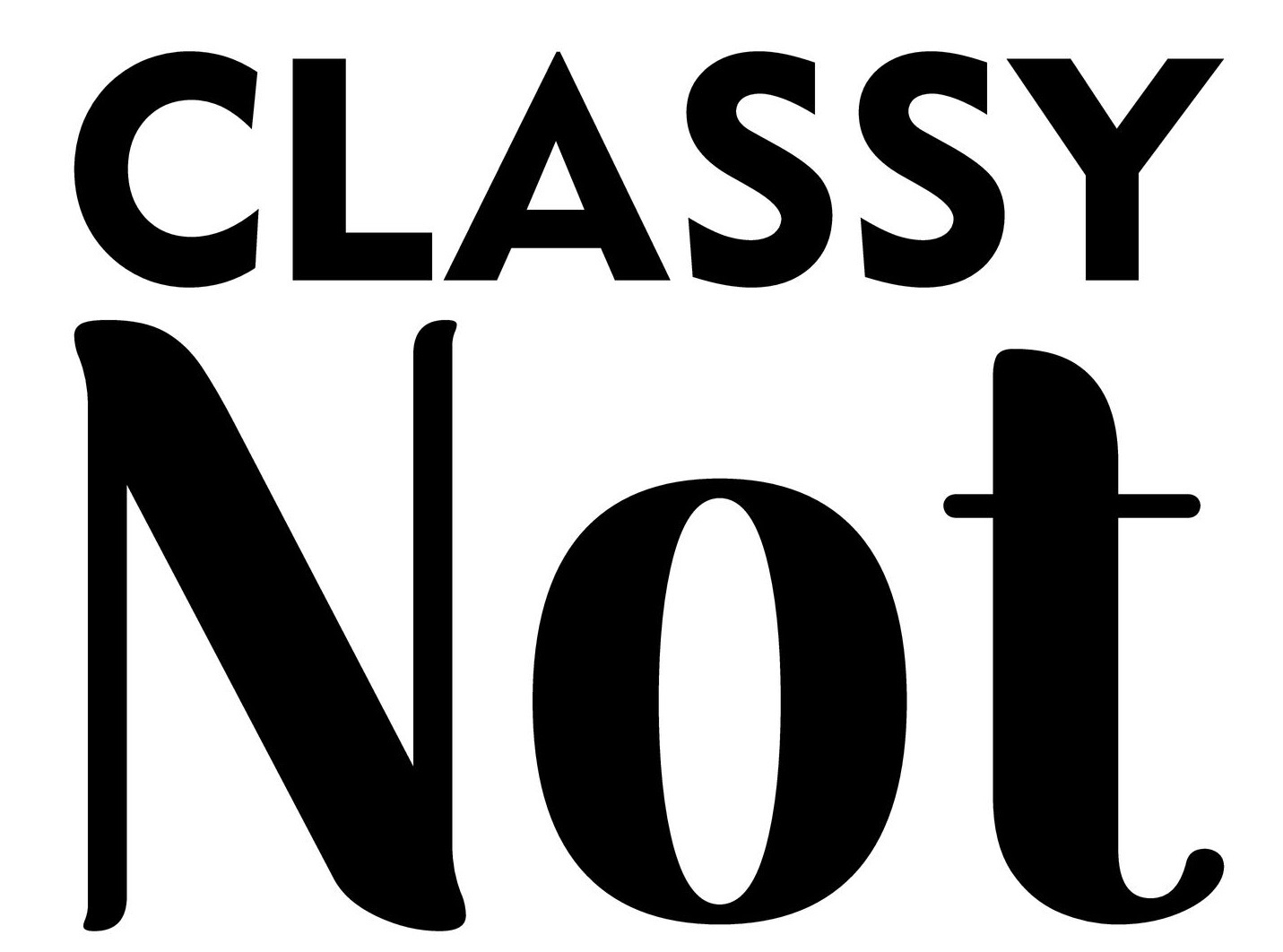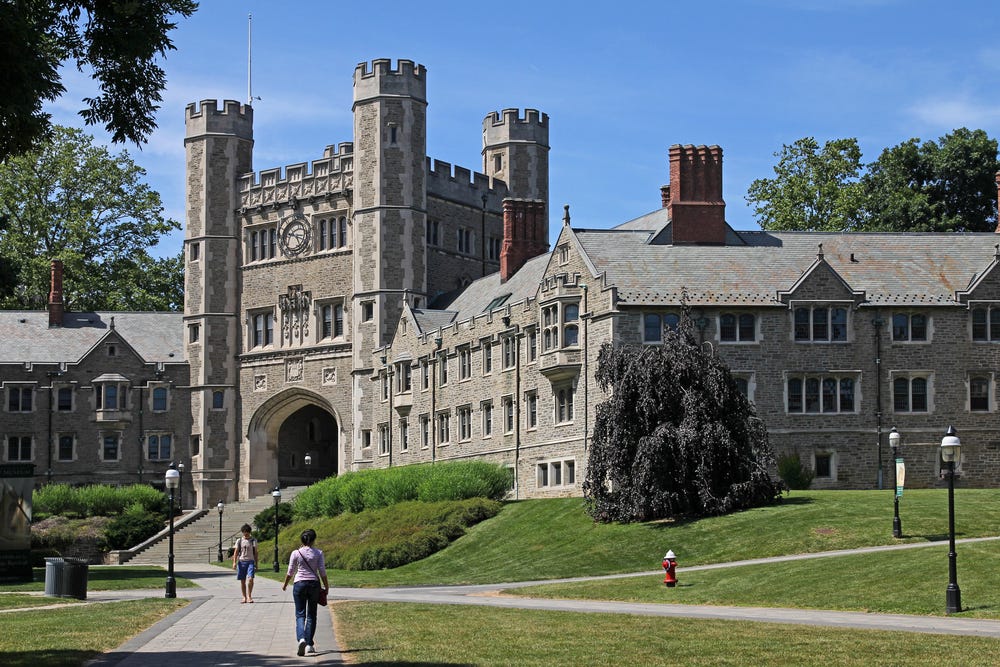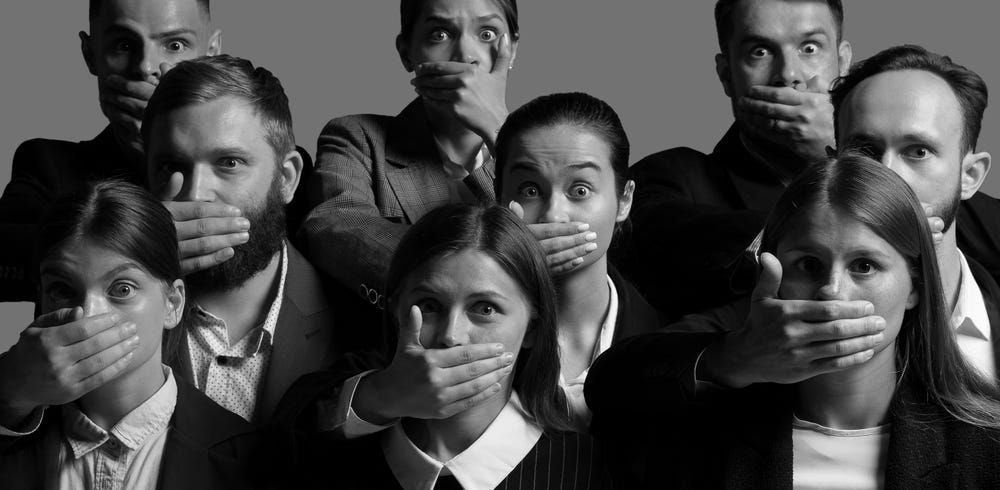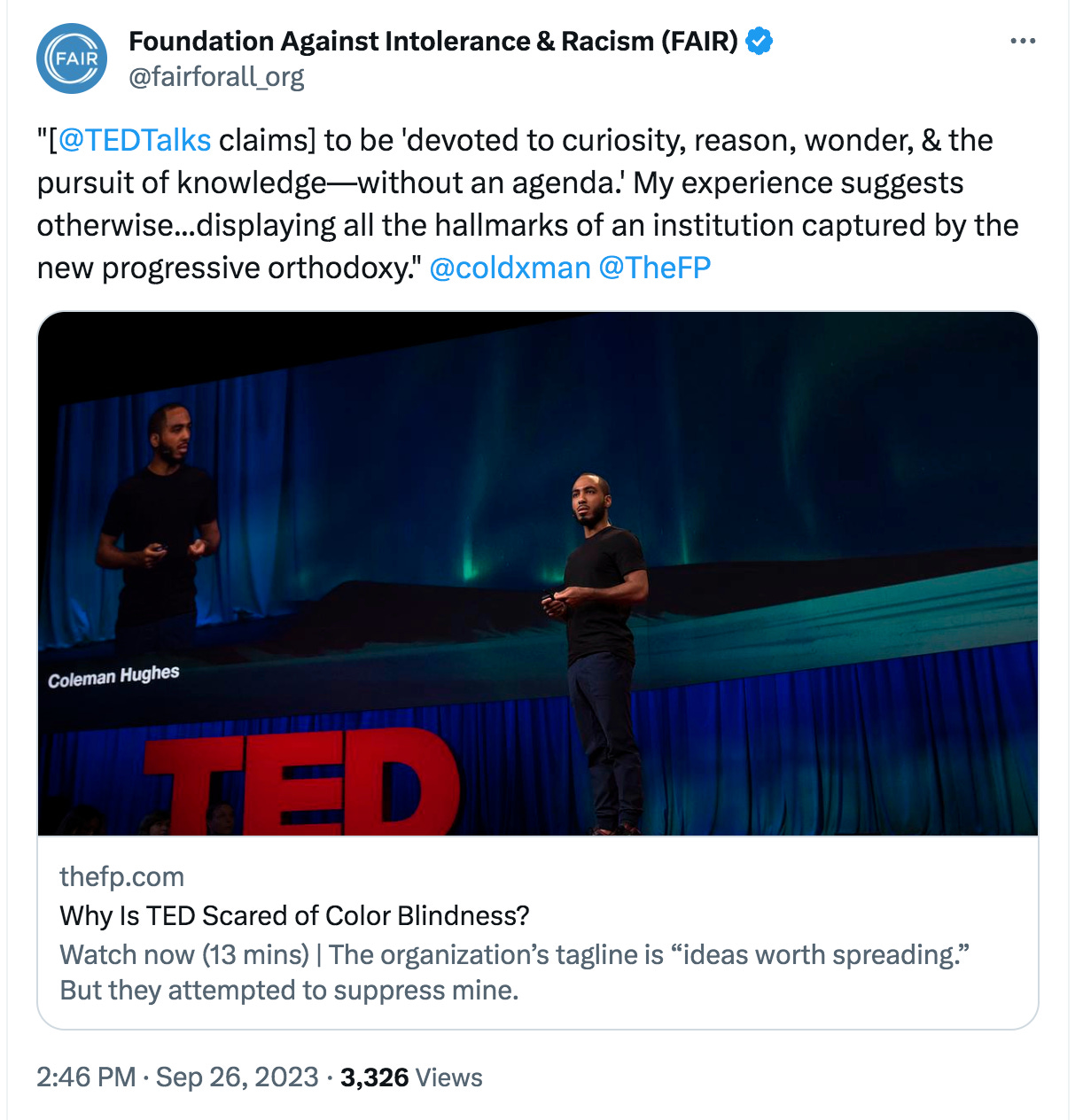E-Pluribus | September 27, 2023
Middle class, upper class, working class . . . or just low class?; Princeton and academic freedom; and government censorship helps no one.
A round-up of the latest and best writing and musings on the rise of illiberalism in the public discourse:
Chris Stirewalt: A Classless Society, Indeed
The dream of America has always been a society that rejects the rigid class structure of older European cultures and others throughout the world. At The Dispatch, Chris Stirewalt confronts the darker side of this generally positive impulse which can amount to a reduction to the lowest common denominator.
America’s allergy to snobbery has mostly been a good thing. Our resentment of notions of class and station common in Europe and many Asian cultures has been crucial to our nation’s capacity for dynamism and opportunity.
But it also creates a kind of inflation for crassness. When nobody wants to be elite or superior, it takes more and more to establish one’s status as a renegade or an outsider. We know all about this with sex and violence in our culture. What was once shocking, say the once-infamous shower scene in Psycho or Sharon Stone’s interrogation in Basic Instinct, now seems quaint. The payload needed to horrify or titillate an audience goes up and up, always demanding more blood or skin to seem truly edgy.
So it goes with boorishness and crudeness for the rest of society. With everyone working so hard to prove they are not elites, particularly the elites themselves, you need to be ever more real and raw to set yourself apart.
Americans have developed an unhealthy appetite for attaining the status of victimhood. And when that desire permeates even the highest reaches of a society, it tends to forbid showing signs of competency, agreeableness, and decorum.
Which brings us, of course, to our pitiful Congress, John Fetterman’s shorts, Lauren Boebert (patroness of the performing arts), and a bunch of overeducated millionaires pretending to be oppressed members of the underclass.
[ . . . ]
What you’d get is what we have, not just in Congress, but across the broad elite in America: a bunch of people so afraid of being seen as typical try-hards that they denigrate virtue and aspire to be seen as crude, rude, and crass. They don’t want to be “basic,” so they would rather be abased.
That’s how we went from having a Congress in which members aspired to be respected and influential to one in which members want every day to be Caddy Day at Bushwood Country Club. It’s the slobs versus the snobs, all right, but what happens when there are no more Elihu Smails to kick around anymore?
Read it all.
Abigail Anthony: Princeton professor, free speech leader hopeful about academic freedom initiative
With its new Academic Freedom Initiative, the University Center for Human Values at Princeton is hoping to reverse the tide on academic freedom. Abigail Anthony reports for The College Fix:
“UCHV is launching an Academic Freedom Initiative which sets itself two tasks: first, it will revisit and critically probe the normative and legal bases of academic freedom,” it stated. “Second, it aims to better understand why and how academic freedom is being attacked—and what kinds of defenses might be successful in particular circumstances.”
[. . .]
Conservative Princeton Professor Robert George expressed his enthusiasm for the initiative in an email to The Fix.
“I’m delighted to learn about the UCHV’s initiative on academic freedom,” he wrote. He added he expects it will “usefully complement” the James Madison Program’s Initiative on Freedom of Thought, Inquiry, and Expression.
“The more oars in the water in defending academic freedom, the better—especially at a time when freedom of speech and related values are under attack from elements within universities as well as forces outside them,” said George. . .
“Princeton’s poor showing in the [Foundation for Individual Rights and Expression] free speech rankings is disappointing,” George wrote to The Fix. “Despite [the university’s adopted University of Chicago free speech principles], however, a great many of our students, especially those who hold opinions that are at variance with dominant views on campus, report censoring themselves, not only in class discussions but also in conversations outside class.”
Read it all here.
Philip Hamburger: Biden’s Social-Media Censorship Harms Us All
Censorship clearly harms the one being censored, but Philip Hamburger asserts at the Wall Street Journal that the negative impact doesn’t stop there. Details from the Missouri v. Biden case before the Supreme Court (for consideration of staying the current injunction in place or allowing it to remain in place) demonstrate how insidious government interference in free expression can be, even if it’s “only” social media.
The chilling of speech [as reflected in the Missouri v. Biden court case] has been doubly unconstitutional because it affects the freedom to read opposing views. The First Amendment protects not only the right to express views but also the right to hear what others have to say. Although often presented as a distinct right, the right to hear can be considered an essential element of the right to speak.
People can’t develop their views with any sophistication unless they can consider opinions that enlarge, refine, moderate or challenge their own. So, when government demands the suppression of some speech and chills even more, it reduces the diversity, value and moderation of opinion—and thereby diminishes the opportunity for every individual to develop and express his own considered views. Censorship inhibits the output of critical voices, which lessens Americans’ intellectual input, which in turn limits their intellectual output. Reading and speaking are inextricably linked in conversation.
The chilling of one insightful opinion from a scientist or physician can profoundly alter scientific and medical debate. So can the suppression of one patient’s report of an adverse vaccine event. Therefore, when vast numbers of Americans are chilled in their scientific and medical speech, it dangerously injures all of us, who suffer a diminished opportunity to learn and to reconsider and refine our own views. The government’s chilling policies appear to have had a massive and cascading effect in reducing the diversity of opinion and the quality of public discussion.
Through its chilling policies, the government has injured the plaintiffs and all other Americans directly, not only through the platforms. And because that censorship deprives everyone of access to a variety of views, the plaintiffs can’t be protected without an injunction against the full range of censorship.
Read the whole thing.
Around Twitter (X)
“Thank you for coming to my TED talk” has become a cliche, but apparently some TED employees weren’t thanking Coleman Hughes for his. The Free Press has the story:
Here’s Zaid Jilani with an observation on internet platforms and free speech:
And finally, just how revolutionary was the First Amendment? Here’s Greg Lukianoff of the Foundation for Individual Rights and Expression (FIRE). Click for video.











